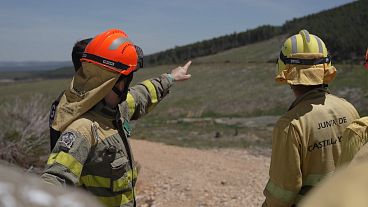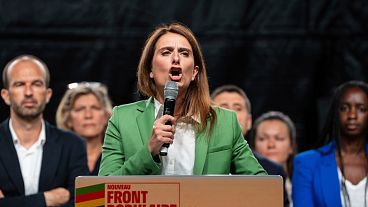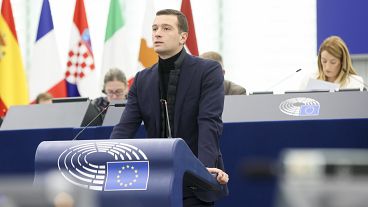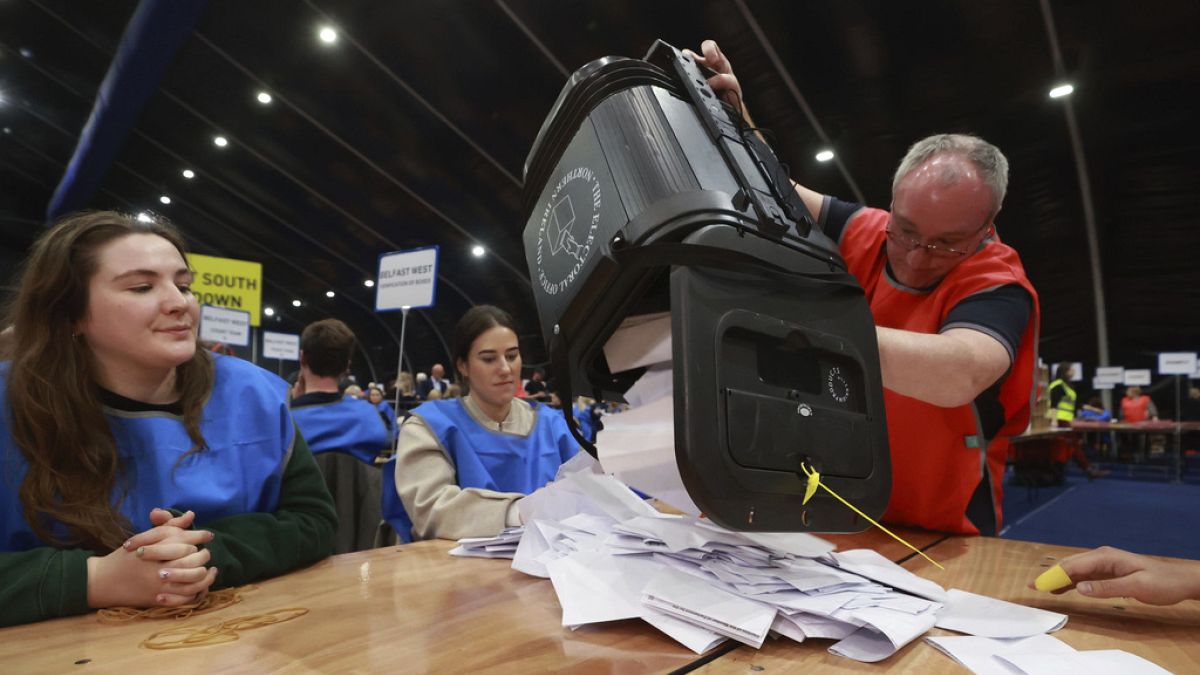The republican party Sinn Féin has hailed further gains in Northern Ireland as progress towards a single Irish state on the island, despite pro-UK unionist candidates winning a higher share of the vote overall.
Irish nationalist party Sinn Féin’s leader has hinted at a future unified Ireland after it became the largest party in Northern Ireland thanks to a drubbing suffered by the Democratic Unionist Party, although it failed to add to the seven of 18 constituencies it already held.
“The message of the people of the north of Ireland to the British government tonight is that change is happening, it is time to plan, it is time to prepare for a new future together on this island,” Sinn Féin leader and member of the Irish parliament in Dublin Mary Lou McDonald said today.
The DUP went into yesterday’s general election still reeling from the resignation in March of its leader Jeffrey Donaldson, charged with alleged historical sex offences which he denies. It lost three of its eight seats, and only narrowly fought off a challenge from Sinn Féin in East Londonderry.
The unionist party’s woes were compounded by Ian Paisley’s loss of the North Antrim constituency. His father, a firebrand cleric of the same name, was a DUP founder, and between them the family has been present in the UK parliament continuously since 1970.
Paisley was narrowly beaten by the septuagenarian Jim Allister who set up the Traditional Unionist Voice party in 2007 after quitting the DUP over its agreement to share power with Sinn Féin in the devolved parliament in Belfast. An independent took the North Down constituency with DUP support, and the Ulster Unionist Party won South Antrim.
The Alliance Party, which is non-sectarian (the Republican/Unionist divide has historically been a Catholic/Protestant split) and takes no position on the constitutional future of the province, also made waves by winning Donaldson’s old seat, Lagan Valley.
Sinn Féin had already passed a political milestone in the 2022 elections, becoming the largest party in Northern Ireland’s Stormont assembly. Its freshly elected MPs will not be taking up their lion’s share of the seats in Westminster, however, as the party considers rule from London illegitimate.
Just over 38% voted for republican parties (Sinn Féin’s winning 27% bolstered by support for the Social Democratic and Labour Party, which won two seats).
The DUP garned 22% of the vote, while the various unionist factions combined, though winning only eight seats, totalled nearly 45%. The Alliance accounted for the bulk of the rest, on a turnout of 57%.
According to the 1998 Good Friday Agreement that brought to an end three decades of political violence, an era known as ‘the troubles’, reunification of Northern Ireland with the Republic of Ireland to the south can only take place peacefully and if a majority of citizens on both sides of the border vote for it.
“The people have spoken,” McDonald said. “I want to thank every person who came out and put their X beside a Sinn Féin candidate to get behind our positive vision for a better future in a new Ireland.”
The complicated politics of Northern Ireland created a thorny political problem during the Brexit process.
The Good Friday Agreement requires an open border between the north and south, although the frontier now separates the UK from the EU. An Irish Sea trade border came into force in 2021, avoiding the need for a hard border on the island in a political fudge bitterly opposed by the DUP.












